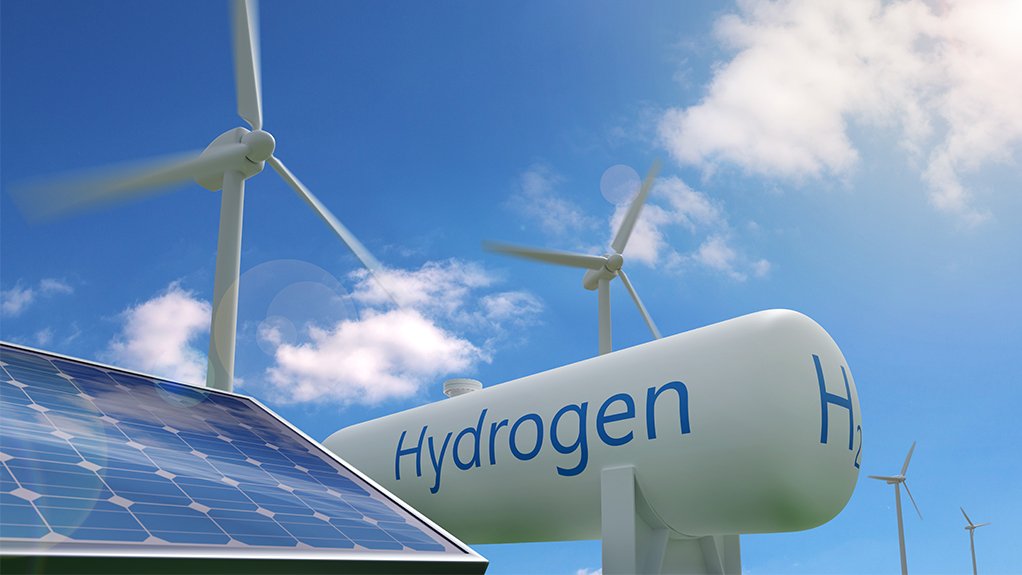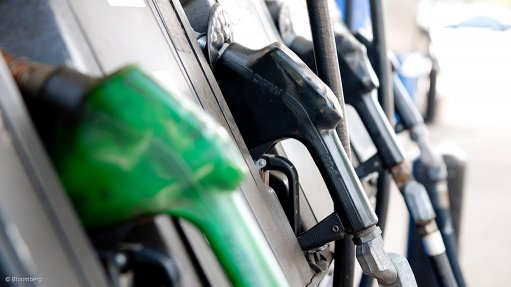Africa can and should harness its hydrogen potential for development
Harnessing the potential for renewable energy and green hydrogen production, or replacing carbon atoms with hydrogen atoms in the energy value chain, can build peace and stability in Africa, petroleum company Conex Liberia MD Amitahb Prasad has said.
"By 2035, Africa can produce 50-million tons of competitively priced green hydrogen. The expected global demand for green hydrogen is 607-million tons by 2050. In comparison, Africa's demand for green hydrogen and its derivatives is expected to reach 10-million to 18-million tons a year by 2050, but with a production potential much above that.
"Africa can export, after meeting internal demand, between 20-million and 40-million tons a year of green hydrogen by 2050. It can therefore consume its own production of green hydrogen and have sufficient surplus to export," Prasad emphasised during a presentation at the Hydrogen Africa conference, held in Johannesburg, in late September.
Further, the potential cost to produce green hydrogen was estimated at about $2.50/kg by 2030 and could trend lower to between $1/kg to $2/kg by 2050, he noted.
The future energy basket would see blue hydrogen continue to play a role, with an estimated 31% of hydrogen derived from blue processes and 69% derived from green processes, although grey hydrogen would cease to be part of the basket, he added.
An International Energy Agency study in 2022 estimated that Africa could produce green hydrogen at a cost of between $1.50/kg and $2.70/kg, and require investment of between $450-billion and $900-billion by 2050.
"Harnessing Africa's renewables and hydrogen potential will not only help to overcome some of the social and development problems in Africa, but is a good business case that makes sense," said Prasad.
Africa has 17% of the world's population, 20% of its arable land, but produces only 4% of global greenhouse gases (GHGs). African countries are vulnerable to climate change, despite not being large contributors to GHGs.
Key to unlocking the potential of green hydrogen is to ensure legal ease of securing land, of which there are large tracts, he added.
"The green hydrogen production potential in West Africa is significant, with a potential levelised cost of electricity of between €0.21/kWh and €0.5/kWh. This has the potential to change the social and political dynamics of the whole region.
"A pipeline along the coast, from Nigeria to Morocco, can transport hydrogen from South to North along the west coast.
"A pipeline is an important component of hydrogen infrastructure and, if a pipeline can be developed or an existing one retrofitted, then the landed cost of hydrogen in the European export market can be significantly lower than liquefaction or green ammonia," he said.
However, while all 16 countries of the Economic Community of West African States have energy and renewable energy policies, none of them have holistic hydrogen strategies and only three, Côte d'Ivoire, Guinea and Mali, have undertaken some hydrogen initiatives.
"It is important for West African States to move forward in this direction [of hydrogen policies]," he said during the Hydrogen Africa conference.
Additionally, if any petroleum exporting country's gross domestic product is more than 50% dependent on fossil fuels, then they are especially vulnerable to global shifts.
"Countries can continue to sell fossil fuels, with West Africa benefitting from Europe's aim to be free of Russian gas by 2030, but must also take a long-term view. For example, they must explore decarbonisation and low-carbon energy options, and must invest in renewables.
"This is important for fossil fuel operators, such as Conex, as it is not only governments and States that have to consider their own survival over the long term," he noted.
Comments
Press Office
Announcements
What's On
Subscribe to improve your user experience...
Option 1 (equivalent of R125 a month):
Receive a weekly copy of Creamer Media's Engineering News & Mining Weekly magazine
(print copy for those in South Africa and e-magazine for those outside of South Africa)
Receive daily email newsletters
Access to full search results
Access archive of magazine back copies
Access to Projects in Progress
Access to ONE Research Report of your choice in PDF format
Option 2 (equivalent of R375 a month):
All benefits from Option 1
PLUS
Access to Creamer Media's Research Channel Africa for ALL Research Reports, in PDF format, on various industrial and mining sectors
including Electricity; Water; Energy Transition; Hydrogen; Roads, Rail and Ports; Coal; Gold; Platinum; Battery Metals; etc.
Already a subscriber?
Forgotten your password?
Receive weekly copy of Creamer Media's Engineering News & Mining Weekly magazine (print copy for those in South Africa and e-magazine for those outside of South Africa)
➕
Recieve daily email newsletters
➕
Access to full search results
➕
Access archive of magazine back copies
➕
Access to Projects in Progress
➕
Access to ONE Research Report of your choice in PDF format
RESEARCH CHANNEL AFRICA
R4500 (equivalent of R375 a month)
SUBSCRIBEAll benefits from Option 1
➕
Access to Creamer Media's Research Channel Africa for ALL Research Reports on various industrial and mining sectors, in PDF format, including on:
Electricity
➕
Water
➕
Energy Transition
➕
Hydrogen
➕
Roads, Rail and Ports
➕
Coal
➕
Gold
➕
Platinum
➕
Battery Metals
➕
etc.
Receive all benefits from Option 1 or Option 2 delivered to numerous people at your company
➕
Multiple User names and Passwords for simultaneous log-ins
➕
Intranet integration access to all in your organisation





















